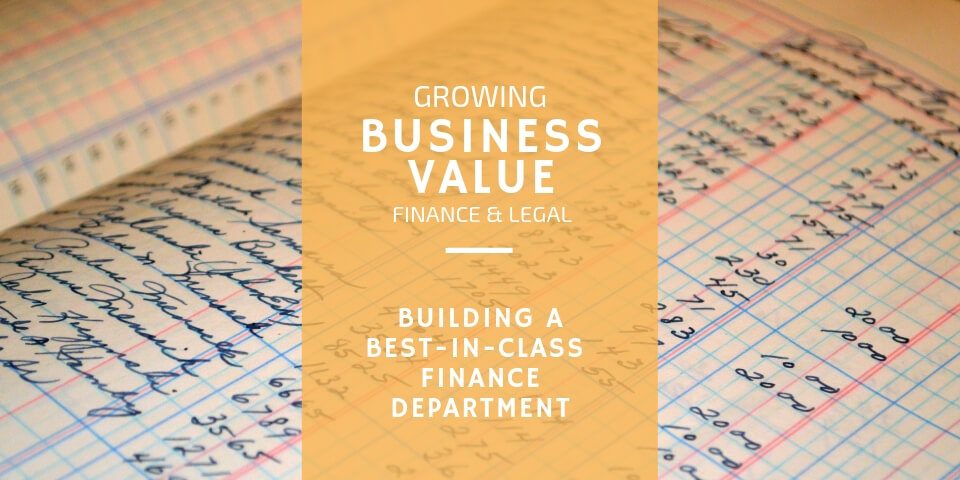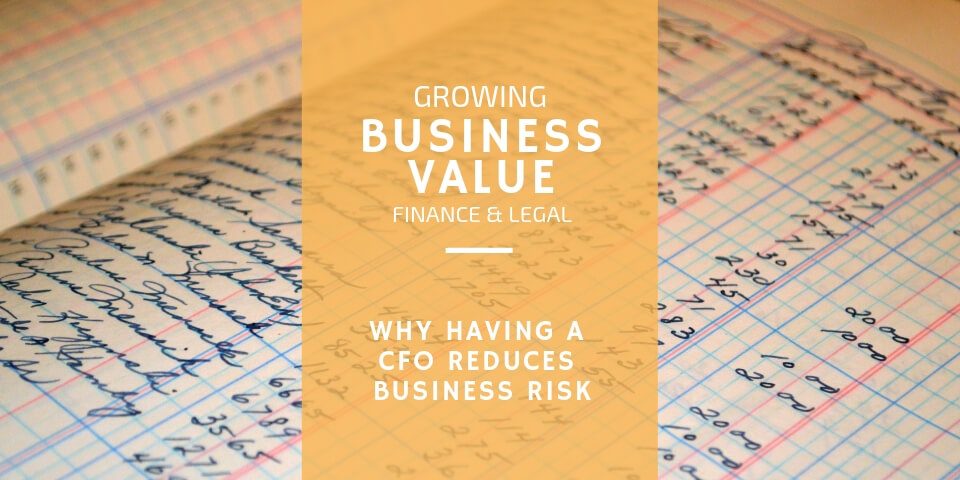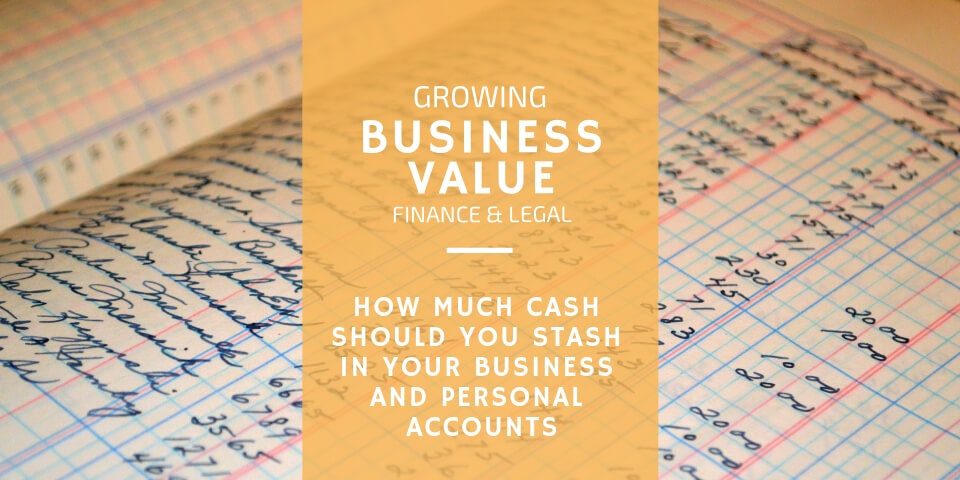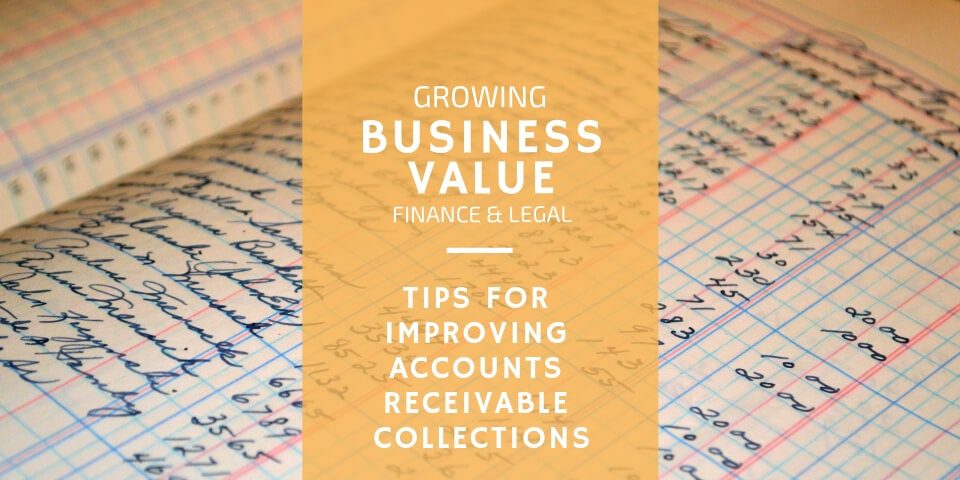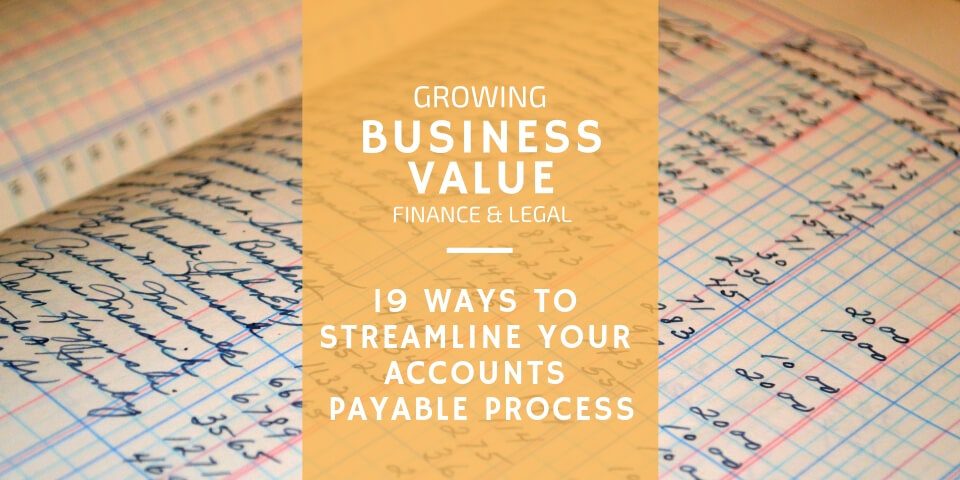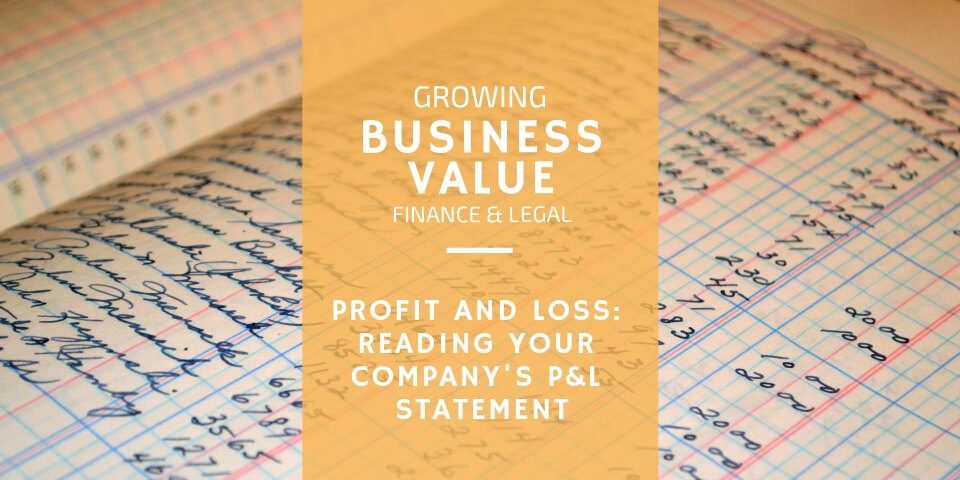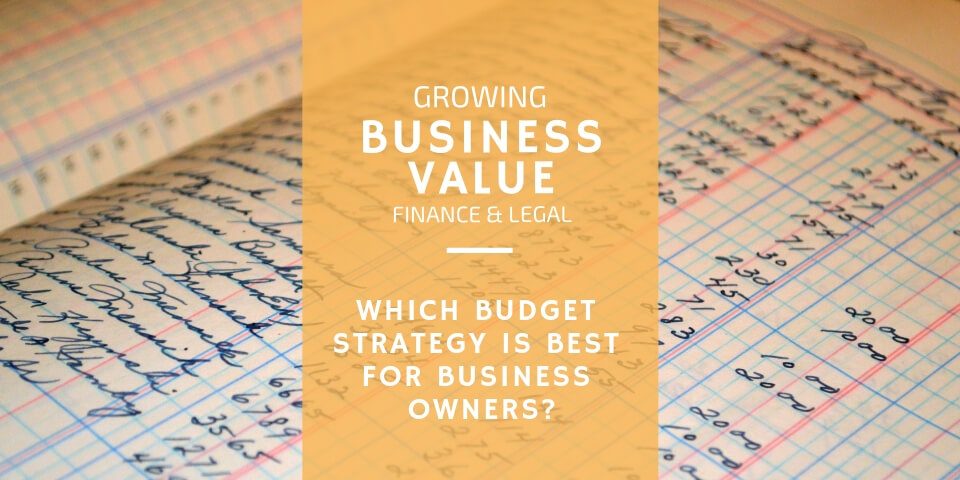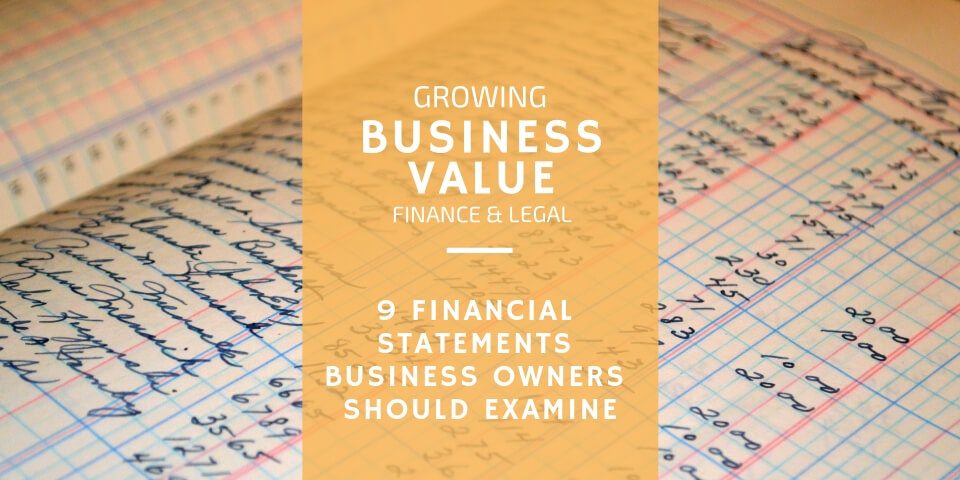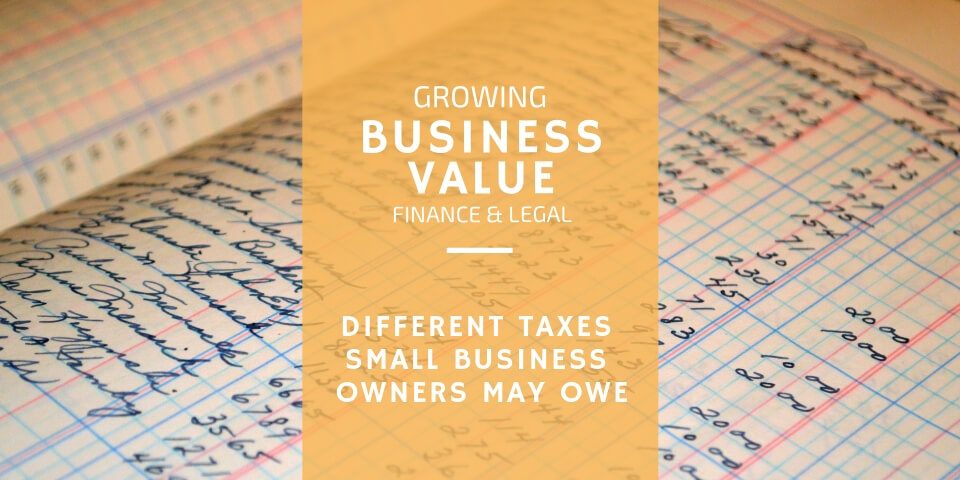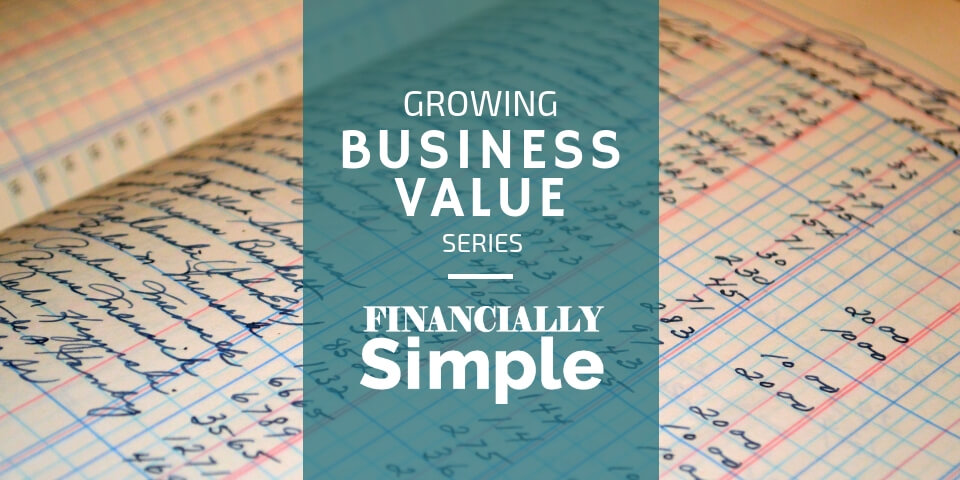
Business Growth - Finance Articles
Your business MUST have all its books and financials in order. That is why we are covering all aspects of business finance for growth.March 11, 2019
In this Value Growth Series, I’ve developed mini-series for each of the 8 Foundational Components that drive up your business’s value. Thus far, I’ve discussed planning, leadership, sales, marketing, personnel, and operations. Starting with this article, I’ll be talking about finance. Whether you are a solopreneur or an owner of a business with hundreds of employees, I want you to think about finance as a department or a distinct area of your business. And whether you’ve reached success in spite of your own financial ignorance or you are a financial guru, all business owners can improve in this area of finance.
March 13, 2019
Most of the time, business owners think that their Chief Financial Officer (CFO) or their Certified Public Accountant (CPA) only worries about company tax issues and payments. However, your company’s financial needs involve more than taxes. You need a CFO or a CPA to oversee multiple departments and to wear many hats within your organization. By creating harmony within the company’s finance departments, a CFO reduces business risk and increases the functionality of your business.
March 15, 2019
In my most recent Value Growth article, I mentioned that a CFO, or the person who leads your finance department, should oversee four divisions of your business – treasury, tax, accounting, and finance. Subsequently, those in the treasury division of your business handle cash flow, investments, accounts receivable (income), and accounts payable (expenses). Since cash flow is the bread and butter of your business, I want to discuss that. Specifically, I want to talk about how much cash you should stash in your business and personal accounts.
March 18, 2019
In my last article, I talked about how much cash you should keep in your personal and business checking and savings accounts. Now, I want to talk to you about how to get paid. More specifically, you need to get paid in a timely manner in order to build up your cash reserves. The CFO or department head in charge of your treasury oversees your cash flow, which includes your accounts receivable. This AR division of your company is directly responsible for collecting customer payments. Thus, it’s directly responsible for the health and well-being of the cash flow into your business. To keep that cash flow coming in, I have 19 tips for improving accounts receivable collections.
March 20, 2019
I realize that as a small business owner you may not have the funds or the capacity to hire a CFO. Most likely, you’re the CFO. If that’s the case, then you must make a concerted effort to oversee all things financial, especially cash flow in and out of your company. However, unless you have bookkeeping experience or a degree in business, finance, or accounting, directing your financial department can be daunting. Therefore, if at all possible, I recommend hiring a CFO or placing someone within your financial division in charge of Accounts Payable (AP) – the money you owe vendors for products and services. You need someone who knows which Accounts Payable processes are necessary and someone who can implement those processes.
March 22, 2019
Often, business owners typically look at their Profit and Loss Statement at the end of the year. And while they may glance over the report, entrepreneurs know that P&L Statements are important to the “financial guys.” However, most business owners don’t know how to read the reports. If you are one of those business owners, then you are crippling your financial department. Without your P&L’s story, you cannot create a transformative business budget nor can you build a pro forma. So today, let me show you how to read a P&L Statement.
March 25, 2019
The word “budget” often strikes fear in the hearts of business owners. Yet, a budget is simply a tool that allows business owners to make prudent and wise decisions. That’s all it is. Nothing more and nothing less. So today, I want to talk about two different budget strategies you can use to anticipate your yearly income and expenses: the zero-based or the incremental budget strategy.
March 27, 2019
I don’t know about you, but I like to look at my company’s financial reports. To me, financial statements are vital for the S.W.O.T. Analysis you and your team members perform during your strategic planning sessions. If read and understood, they can reveal many of your company’s Strengths, Weaknesses, Opportunities, and Threats. However, I often run across business owners who do not know what types of financial statements to pull or how to read them once printed. Therefore, I’ve put together a list of nine financial statements business owners should examine during their strategic planning sessions.
March 29, 2019
A couple of years ago, I was hired to help a business owner plan the sale of his business and build a life long income plan. His company was profitable, and he had worked hard to grow its intrinsic value. Yet, we could not sell his company at the price he desired. Why? Because he hadn’t paid all of his taxes. Now, my client hadn’t purposefully eluded tax payments. He just missed one, year after year. He had no idea it was due, and it ended up costing us the sale of his business. I don’t want that to happen to you. Therefore, I’m giving you a taxes checklist with 11 common taxes small business owners need to check for delinquency.
January 16, 2022
Since the onset of the Covid pandemic, things have been really tough for small business owners. First, there were the shutdowns. Then, there were product and labor shortages. On top of all of this, business owners had to learn to adapt their businesses to accommodate the safety of their clients and to overcome each new obstacle. At this point, there are many of you who are just ready to sell and move on. But, how did your business perform last year? Before you answer that question, you’ll need to understand the key financial ratios that might tell a different story. Join me as I detail the key financial ratios you’ll need to know when selling your business.

